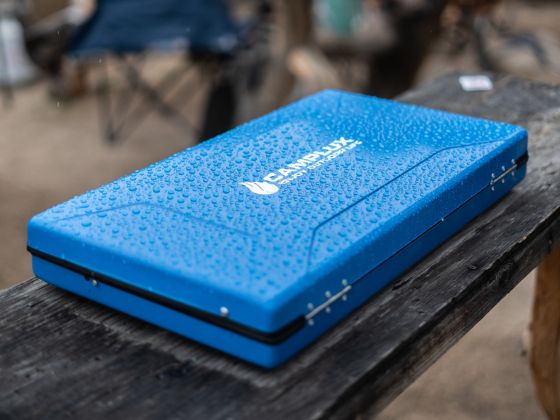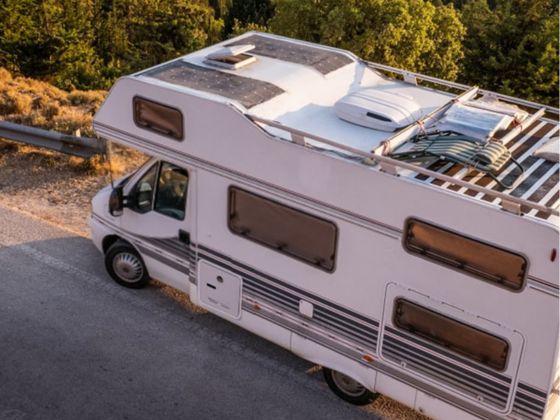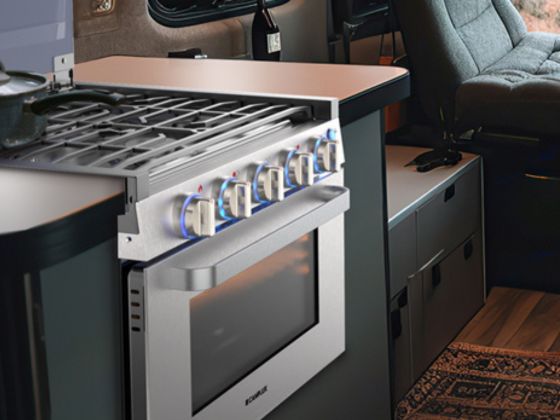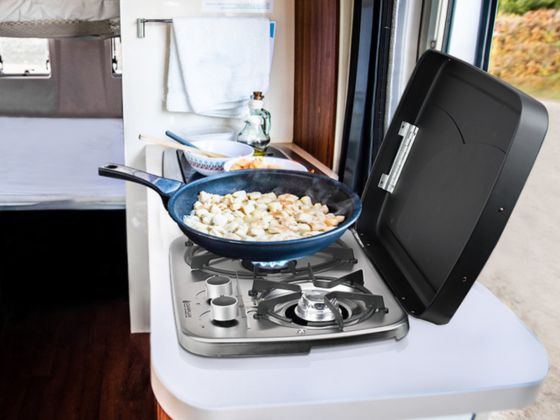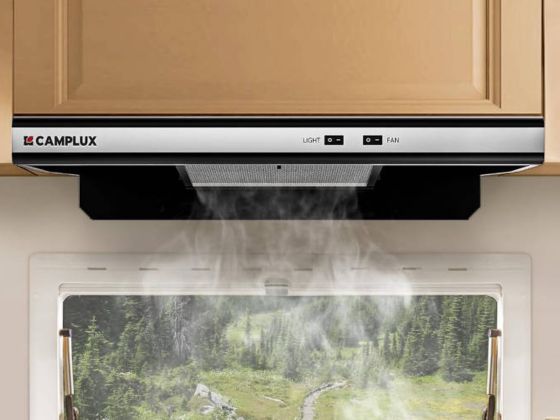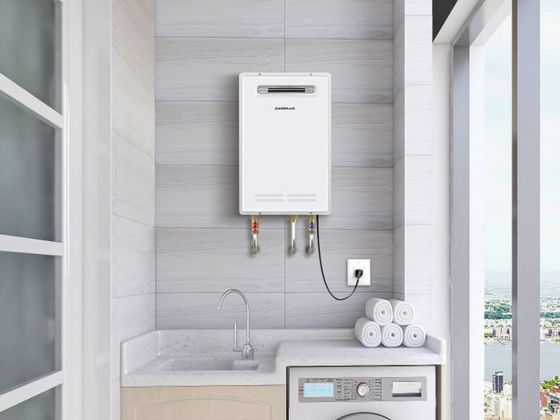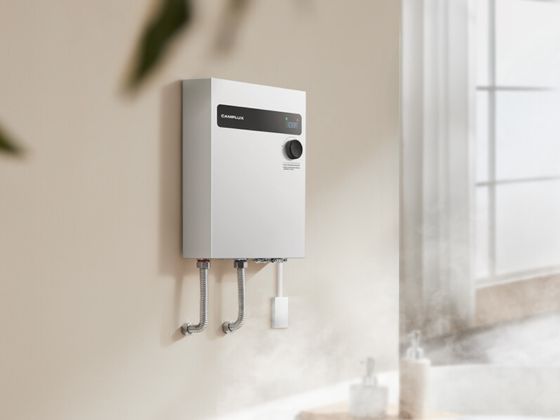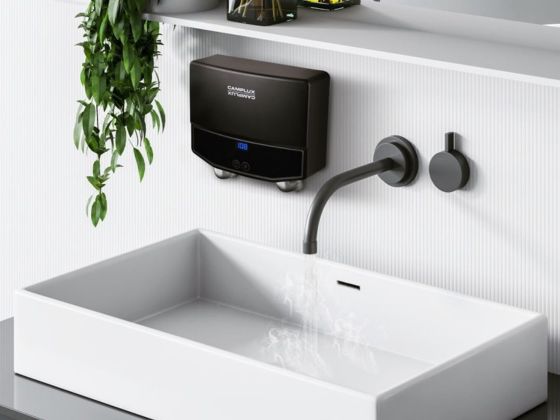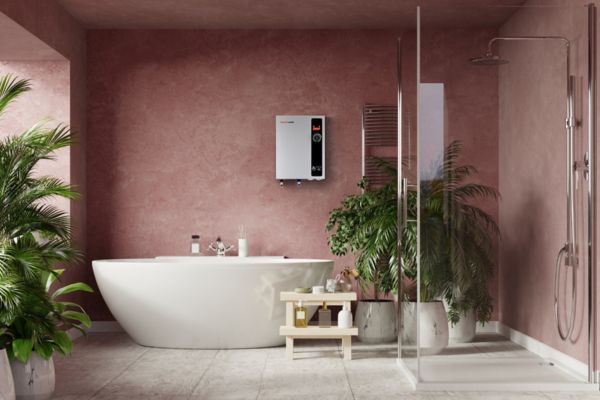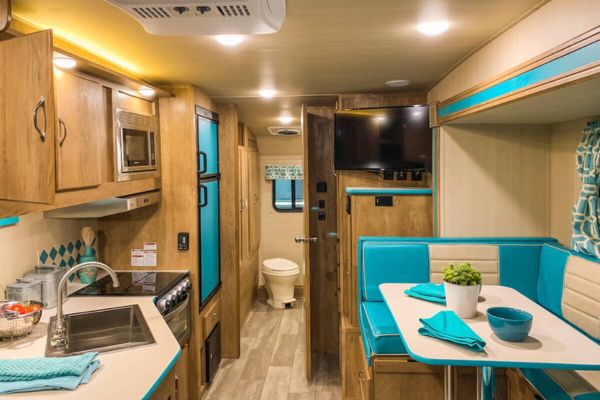Electric tankless water heaters are becoming increasingly popular due to their energy efficiency and endless hot water supply. However, it's important to understand the cost factors associated with these units. In this article, we will explore how electric tankless water heaters work, the advantages they offer, the factors that affect their cost, and how they compare to traditional water heaters. By the end, you will have a comprehensive understanding of the cost implications of electric tankless water heaters.
Key Takeaways
- Electric tankless water heaters provide energy efficiency and endless hot water supply.
- Installation requirements, electricity consumption, water demand, and maintenance and repairs are factors that affect the cost of electric tankless water heaters.
- Compared to traditional water heaters, electric tankless water heaters have a higher initial cost but lower operating costs and long-term savings.
- Understanding the basics of electric tankless water heaters, the heating element, and the role of flow rate is crucial in comprehending their functioning.
- Advantages of electric tankless water heaters include energy efficiency, endless hot water supply, and space-saving design.
How Electric Tankless Water Heaters Work
The Basics of Electric Tankless Water Heaters
Electric tankless water heaters work by heating water on demand, eliminating the need for a storage tank. When a hot water tap is turned on, cold water flows into the unit and passes over a heating element, which quickly heats the water to the desired temperature. The heated water then flows out of the unit and to the tap.
One important factor to consider when using an electric tankless water heater is the flow rate. The flow rate refers to the amount of water that can be heated per minute. It is important to choose a unit with a flow rate that meets your household's hot water needs. Higher flow rates are typically required for larger households or homes with multiple bathrooms.
To help you understand the benefits of electric tankless water heaters, here are some key points:
- Energy Efficiency: Electric tankless water heaters are highly energy efficient, as they only heat water when it is needed. This can result in significant energy savings compared to traditional water heaters.
- Endless Hot Water Supply: With an electric tankless water heater, you can enjoy a continuous supply of hot water. There is no need to worry about running out of hot water, even during peak usage times.
- Space-Saving Design: Electric tankless water heaters are compact and can be installed in small spaces. This makes them a great option for homes with limited space or for those who prefer a more streamlined look.
In summary, electric tankless water heaters provide hot water on demand, offer energy efficiency, provide an endless supply of hot water, and have a space-saving design.
Understanding the Heating Element
The heating element is a crucial component of an electric tankless water heater. It is responsible for heating the water as it passes through the unit. The heating element is typically made of high-resistance material, such as copper or stainless steel, which allows it to generate heat efficiently. Proper maintenance of the heating element is essential to ensure its longevity and optimal performance.
One important factor to consider when it comes to the heating element is its wattage. The wattage of the heating element determines how quickly the water can be heated. Higher wattage heating elements can heat the water faster, but they also consume more electricity. It is important to choose a heating element with the appropriate wattage for your specific needs.
In addition to wattage, the size of the heating element also plays a role in the performance of the electric tankless water heater. A larger heating element can handle higher flow rates and provide a higher volume of hot water. However, a larger heating element may also require more electricity to operate.
The Role of Flow Rate in Electric Tankless Water Heaters
The flow rate is a crucial factor to consider when choosing an electric tankless water heater. It refers to the amount of hot water the unit can deliver per minute. A higher flow rate means the heater can supply more hot water at once, making it suitable for households with high water demand.
When selecting a tankless water heater, it's important to match the flow rate to your specific needs. If the flow rate is too low, you may experience a decrease in water pressure and temperature when using multiple fixtures simultaneously. On the other hand, a flow rate that is too high for your needs can result in wasted energy.
To determine the appropriate flow rate, consider the number of fixtures and appliances that will be using hot water simultaneously in your home. This can include showers, faucets, dishwashers, and washing machines. Consulting with a professional plumber can help ensure you choose a tankless water heater with the right flow rate for your household's needs.
Advantages of Electric Tankless Water Heaters
Energy Efficiency of Electric Tankless Water Heaters
Electric tankless water heaters are known for their energy efficiency. Unlike traditional water heaters that constantly heat and store a large volume of water, electric tankless water heaters only heat water as it is needed. This on-demand heating process eliminates the standby heat loss that occurs with traditional water heaters, resulting in significant energy savings.
In fact, studies have shown that electric tankless water heaters can be up to 30% more energy efficient than traditional water heaters. This means that homeowners can enjoy lower energy bills and reduce their carbon footprint by switching to an electric tankless water heater.
To further enhance energy efficiency, some electric tankless water heaters are equipped with advanced features such as smart controls and self-modulating technology. These features allow the heater to adjust the power output based on the water flow rate, ensuring that only the necessary amount of energy is used to heat the water.
In summary, the energy efficiency of electric tankless water heaters not only saves homeowners money but also contributes to a more sustainable and environmentally friendly home.
Endless Hot Water Supply
Electric tankless water heaters provide endless hot water supply. Unlike traditional water heaters that store a limited amount of hot water, electric tankless water heaters heat water on demand, ensuring a continuous flow of hot water whenever you need it.
With an electric tankless water heater, you don't have to worry about running out of hot water, even during peak usage times. Whether you're taking a long shower, running multiple appliances, or filling up a large bathtub, the hot water supply will remain consistent.
Benefits of endless hot water supply:
- Convenience: You can enjoy hot water for as long as you need it without any interruptions.
- Energy savings: Since the water is only heated when needed, you can save on energy costs compared to traditional water heaters that constantly heat and store water.
- Space-saving: Electric tankless water heaters are compact and can be installed in small spaces, freeing up valuable storage space in your home.
Space-Saving Design
Electric tankless water heaters are known for their compact and space-saving design. Unlike traditional water heaters that require a large storage tank, electric tankless water heaters are small and can be installed in tight spaces. This makes them ideal for apartments, condos, and other small living spaces where space is limited.
In addition to their small size, electric tankless water heaters can also be mounted on walls, further maximizing space utilization. By mounting the unit on a wall, homeowners can free up valuable floor space and create a more organized and clutter-free environment.
Overall, the space-saving design of electric tankless water heaters offers homeowners the flexibility to install the unit in various locations, making them a convenient and practical choice for any home.
Factors Affecting the Cost of Electric Tankless Water Heaters
Installation Requirements
When installing an electric tankless water heater, there are a few important requirements to keep in mind:
-
Electrical Capacity: Ensure that your home's electrical system can support the power requirements of the tankless water heater. It may be necessary to upgrade your electrical panel or wiring.
-
Water Supply: The water supply to the tankless water heater should be adequate to meet the demand. Check the flow rate and pressure of your water supply to ensure compatibility.
-
Ventilation: Electric tankless water heaters do not require venting like gas-powered models. However, they still need proper ventilation to dissipate heat. Make sure there is sufficient airflow around the unit.
-
Location: Choose a suitable location for the tankless water heater. It should be easily accessible for maintenance and repairs. Consider factors such as proximity to electrical outlets and plumbing connections.
-
Permits and Codes: Check local building codes and obtain any necessary permits before installing the tankless water heater.
Electricity Consumption
Electricity consumption is a crucial factor to consider when evaluating the cost of electric tankless water heaters. Unlike traditional water heaters that constantly heat and store water, electric tankless water heaters only consume electricity when hot water is needed. This on-demand heating feature helps to reduce energy waste and lower electricity bills.
One important point to note is that the electricity consumption of an electric tankless water heater depends on the desired water temperature and the flow rate. Higher water temperatures and higher flow rates will require more electricity to heat the water quickly and maintain a consistent supply of hot water.
To determine the electricity consumption of a specific electric tankless water heater model, refer to the manufacturer's specifications or consult with a professional installer. They can provide accurate information on the energy requirements of the unit and help estimate the impact on your electricity costs.
It's worth noting that while electric tankless water heaters are generally more energy-efficient than traditional water heaters, the actual electricity consumption will vary depending on usage patterns and household needs.
Water Demand
Water demand refers to the amount of hot water that is needed in a household or commercial setting. It is an important factor to consider when choosing an electric tankless water heater. The water demand can vary depending on the number of people using hot water, the number of fixtures in the building, and the daily activities that require hot water.
To determine the appropriate size of an electric tankless water heater, it is crucial to estimate the maximum water demand during peak usage times. This can be done by considering the flow rates of different fixtures and appliances, such as showers, faucets, and dishwashers. By understanding the water demand, you can ensure that the electric tankless water heater you choose can meet the hot water needs of your household or business.
Here is a table that shows the average water demand for common fixtures and appliances:
| Fixture or Appliance | Average Water Demand (GPM) |
|---|---|
| Shower | 2.5 |
| Faucet | 1.5 |
| Dishwasher | 1.5 |
It is important to note that these values are approximate and can vary depending on the specific model and usage patterns. It is recommended to consult with a professional plumber or electrician to accurately determine the water demand and choose the right electric tankless water heater for your needs.
Maintenance and Repairs
When it comes to maintenance and repairs of electric tankless water heaters, there are a few key considerations to keep in mind.
Firstly, regular maintenance is essential to ensure optimal performance and longevity of the unit. This includes flushing the system to remove any mineral buildup and checking for any leaks or malfunctions.
Secondly, it is important to be aware of the warranty coverage for your specific model. Understanding what repairs are covered and for how long can help you plan for any potential costs.
Lastly, if you do encounter any issues with your electric tankless water heater, it is recommended to contact a professional technician who is experienced in working with these types of units. They will have the expertise to diagnose and repair any problems efficiently and effectively.
Overall, proper maintenance and timely repairs are crucial for ensuring the continued performance and reliability of your electric tankless water heater.
Comparing the Cost of Electric Tankless Water Heaters to Traditional Water Heaters
Initial Cost
When considering the initial cost of electric tankless water heaters, it is important to factor in the price of the unit itself as well as the cost of installation. The price of electric tankless water heaters can vary depending on the brand, model, and features. On average, you can expect to pay anywhere from $500 to $1,500 for a high-quality electric tankless water heater.
In addition to the cost of the unit, you will also need to consider the cost of installation. While electric tankless water heaters are generally easier to install than traditional water heaters, professional installation is still recommended. This can add to the overall cost, but it ensures that the unit is installed correctly and safely.
It is worth noting that while the initial cost of electric tankless water heaters may be higher than traditional water heaters, they can provide long-term savings in terms of energy efficiency and lower operating costs.
Operating Cost
The operating cost of electric tankless water heaters is an important factor to consider when comparing them to traditional water heaters. Unlike traditional water heaters that constantly heat and store a large volume of water, electric tankless water heaters only heat water as it is needed. This means that they are more energy-efficient and can result in lower operating costs over time.
One study found that electric tankless water heaters can save homeowners up to 50% on their water heating bills compared to traditional water heaters. This significant cost savings is due to the on-demand heating feature of electric tankless water heaters, which eliminates the standby heat loss associated with traditional water heaters.
In addition to energy savings, electric tankless water heaters also have a longer lifespan compared to traditional water heaters. This means that homeowners may save on replacement and maintenance costs in the long run.
Overall, the operating cost of electric tankless water heaters is lower than that of traditional water heaters, making them a cost-effective option for homeowners.
Long-Term Savings
When considering the cost of electric tankless water heaters, it's important to take into account the potential long-term savings they can provide. One of the key advantages of electric tankless water heaters is their energy efficiency. Compared to traditional water heaters, electric tankless models can help reduce energy consumption and lower utility bills.
In addition to energy savings, electric tankless water heaters also offer the benefit of longevity. With proper maintenance and regular inspections, these units can have a longer lifespan compared to traditional water heaters. This means fewer repairs and replacements, resulting in potential cost savings over time.
It's worth noting that the exact long-term savings will vary depending on factors such as electricity rates, water usage, and maintenance costs. However, investing in an electric tankless water heater can be a smart choice for homeowners looking to save money in the long run.
Are you tired of constantly running out of hot water? Upgrade to an electric tankless water heater and never worry about running out of hot water again. At Camplux, we offer a wide selection of electric tankless water heaters that are not only energy-efficient but also cost-effective. Our electric tankless water heaters are designed to provide endless hot water on demand, saving you money on your energy bills. With free shipping and easy online purchasing, there's no reason not to make the switch to an electric tankless water heater. Visit our website today to explore our range of electric water heaters and find the perfect one for your home. Don't wait, start enjoying the benefits of an electric tankless water heater now!
Conclusion
In conclusion, electric tankless water heaters offer numerous benefits such as energy efficiency, space-saving design, and endless hot water supply. However, it is important to consider the upfront cost, installation requirements, and potential electrical upgrades. With proper research and understanding of the long-term savings, investing in an electric tankless water heater can be a wise decision for homeowners looking to reduce their energy consumption and enjoy the convenience of on-demand hot water.
Frequently Asked Questions
Are electric tankless water heaters more expensive than traditional water heaters?
Electric tankless water heaters typically have a higher upfront cost compared to traditional water heaters. However, they can provide long-term savings in terms of energy efficiency and lower operating costs.
Do electric tankless water heaters require a lot of electricity?
Electric tankless water heaters require a sufficient amount of electricity to heat the water on demand. The exact electricity consumption depends on the model and the desired water temperature.
Can electric tankless water heaters meet high water demand?
Electric tankless water heaters are designed to provide hot water on demand. However, their capacity may be limited by the flow rate and the temperature rise required. It is important to choose a model that can meet your specific water demand.
Do electric tankless water heaters require regular maintenance?
Electric tankless water heaters generally require less maintenance compared to traditional water heaters. However, it is recommended to flush the system periodically to remove mineral deposits and ensure optimal performance.
Are electric tankless water heaters suitable for small spaces?
Yes, electric tankless water heaters have a space-saving design and can be installed in compact areas. They do not require a large storage tank like traditional water heaters.
Can electric tankless water heaters provide a continuous supply of hot water?
Yes, electric tankless water heaters can provide an endless supply of hot water as long as the demand does not exceed their flow rate and temperature rise capabilities.

